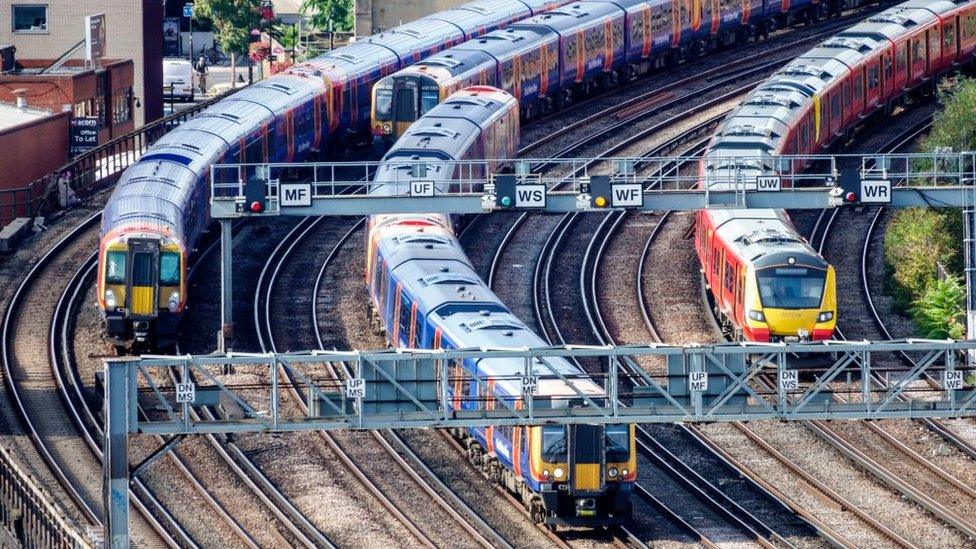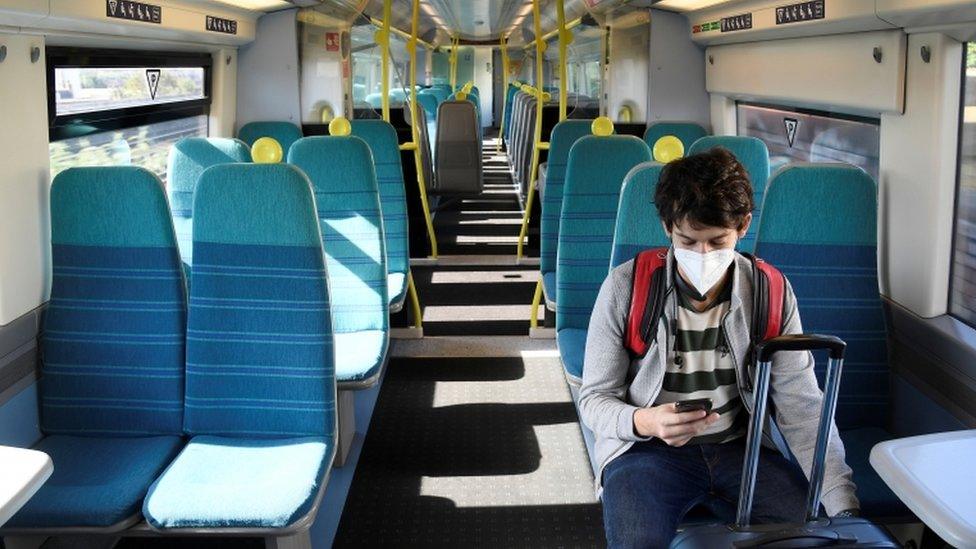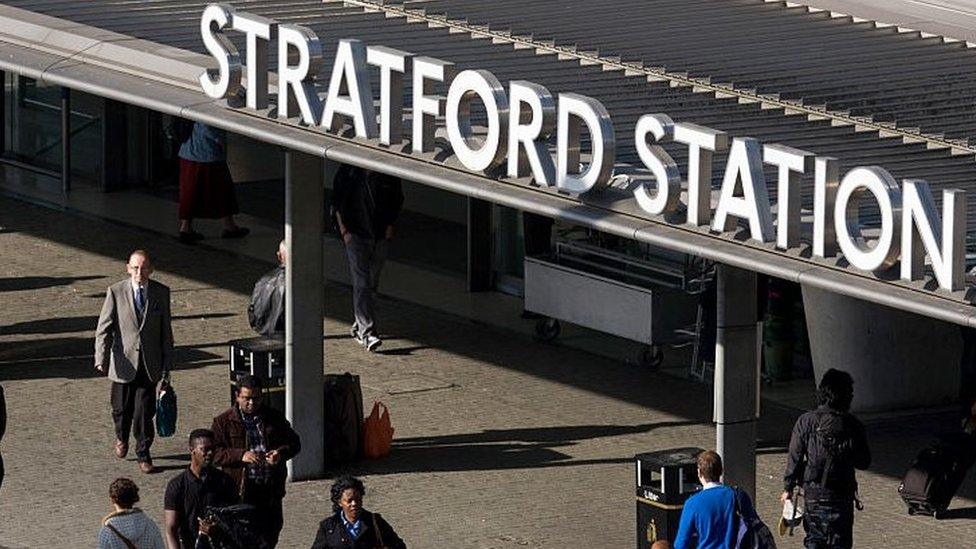Rail fares to rise at fastest pace for nine years
- Published
- comments

Regulated rail fares in England will rise by 3.8% from March, in the biggest increase for nine years.
These regulated prices make up about half of fares and include season tickets on most commuter routes.
Increases are normally implemented on the first working day of every year, but have been delayed until March since 2020 due to the coronavirus pandemic.
The fare rises are based on the Retail Prices Index (RPI) measure of inflation in July.
This time, the government says it will not increase fares by the normal formula of RPI plus 1%, which it used this year when fares went up by 2.6%.
Fares for rail services in Northern Ireland are set by state-owned operator Translink, which does not use RPI. The Scottish Government has not announced its plan for 2022. Wales usually matches changes made in England.
A Welsh government spokesperson said: "We are committed to increasing public transport use in Wales and competitively-priced fares are an important way to do this. We are considering the options available to us."
A 3.8% rise in England would lead to increases in the cost of annual season tickets such as:
Brighton to London (any route): Up £194 to £5,302
Liverpool to Manchester (any route): Up £105 to £2,865
'Fair balance'
Rail minister Chris Heaton-Harris said: "[This] strikes a fair balance, ensuring we can continue to invest record amounts into a more modern, reliable railway, ease the burden on taxpayers and protect passengers from the highest RPI in years.
"Delaying the changes until March 2022 offers people the chance to save money by renewing their fares at last year's price."
Operators are generally expected to match these rises for unregulated fares, although they have been hit hard by the cost of lower passenger numbers during the pandemic.


With the cost of living going up, another price rise will inevitably prompt some grimaces - particularly for commuters considering a regular return to the office when the current working-from-home guidance eventually lifts.
But demand for traditional season tickets was already falling before lockdowns caused rail usage to plummet. And it is leisure, not commuter use, that has led the recovery so far.
The dilemma here is how to attract people back onto the railways, while also trying to address the financial impact of the pandemic on the industry. Raise prices too much and passengers won't want to return.
The government says it is protecting people by going with July's RPI figure, even though inflation has risen markedly since then and the increase won't come in until March.
The industry says it is trying to adapt to passengers' changing needs. So-called flexible season tickets - effectively a bulk purchase of tickets to be used over a set period - are part of that. Around 100,000 have been bought since they launched in late June.

The government said £14bn of taxpayers' money had been spent to keep services running during the pandemic.
It said the rise would help meet some of those costs as well as pay for service improvements.
Anthony Smith, chief executive of the independent watchdog Transport Focus, said: "As some fares rise it is even more important that Great British Railways, when it is set up, gives life to the government's ambition to make rail fares better value for money.
"The need to boost passenger numbers and revenue through innovative rail ticket retailing and offers will be vital. Keeping costs under control will also be needed."
'Brutal'
But Louise Haigh, Labour's shadow transport secretary, said: "This brutal Tory fare hike will be a nightmare before Christmas for millions of passengers.
"Families already facing soaring taxes and bills will now be clobbered with an eye-watering rise in the cost of the daily commute."

Inflation rose by 5.1% in the 12 months to November, the highest level in a decade, prompting the Bank of England to increase the UK interest rate for the first times in three years.
The Department for Transport also announced the Book with Confidence scheme will be extended until the end of March next year.
This allows passengers to change their travel plans up until the night before departure, without being charged a fee, or cancel their tickets and receive a refund in the form of rail vouchers.
Related topics
- Published25 November 2021

